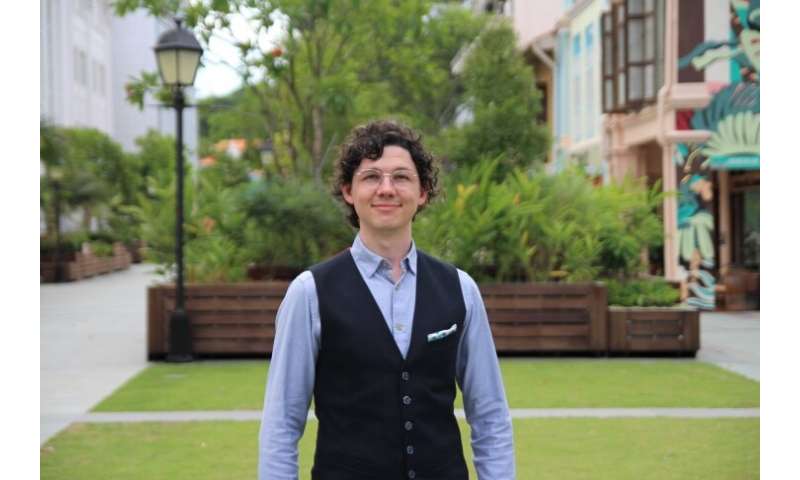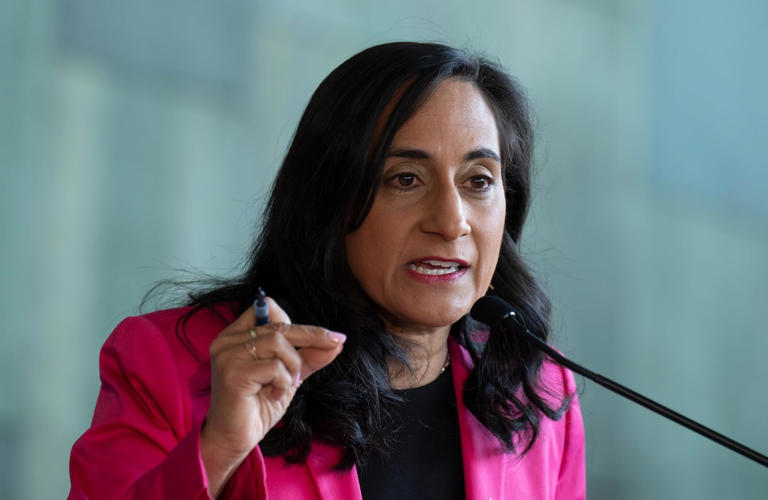Edmonton Sun columnist Neil Waugh the apologist for all things Klein and Tory has thrown up his hands in disgust over the cover up by the government of the fleecing it got from Enron when it deregulated the energy market. See his Edmonton Sun columns: March 10, 2005 Powerful question where he asks:
When first confronted with the Project Stanley allegations, Market Surveillance Administrator Martin Merritt - a watchdog without a government leash - reviewed the Snohomish/California allegations and declared them old news. Then he turned his guns on the media, accusing us of "mischaracterizing the allegations."
Just 20 days later - on the first day the legislature gets down to business - Merritt suddenly changed his tune. There's going to be an investigation after all.
"The MSA has requested and obtained materials filed in proceedings before FERC," Merritt gulped. The Cantwell tapes. But instead of an Alberta-based probe, he turned it over to the feds' weak sister Competition Bureau. Then he took another shot at published "articles and commentary."
Short hours later, the Tory butt-covering started in the legislature. Surely a coincidence. And the premier quickly ducked and let the B-Team take over.
"Albertans have not been impacted in any financial way," blustered Energy Minister Greg Melchin. But how does he know? Especially after Justice Minister Ron Stevens - when asked if his notorious Gang that Couldn't Shoot Straight has launched an investigation - blurted "at this point in time there is no intention to proceed with anything."
Yesterday, Opposition Leader Kevin Taft met the same brick wall.
"I don't get involved in the mechanics of an investigation," the premier snapped.
Melchin blathered on about "legislated hedges."
Even the man who should be on the case, Auditor General Fred Dunn, is handcuffed. The Market Surveillance Administrator has been conveniently tucked away out of his jurisdiction.
"Why do the people of Alberta have to rely on the County of Snohomish to protect their rights?" wondered Taft. Why indeed?
and in his March 17, 2005 column, How serious are we? Alberta talks tough on crime, but ignores power allegations he continues the spanking:In a week when a New York court declared Edmonton's own Bernie Ebbers guilty in the massive WorldCom securities fraud, Alberta Solicitor General Harvey Cenaiko summoned the province's police chiefs to his office.
He vowed to crack down on criminal conspiracies.
"Gangs are a breeding ground for organized crime," stormed our Harv. "Organized crime crosses all boundaries and affects everyone."
He joined Justice Minister Ron (Get Tuff) Stevens in his law-and-order manifesto. Our Harv and Tuff mean business. Or at least they say they do.
"We are targeting crime bosses through co-ordinated efforts," Cenaiko blustered on. He talked about "aggressive action already taken."
It all sounds so wonderful, until yet another Enron horror story shows up, this time from deep in the heart of Texas. And you realize just how pathetic the Alberta Tories are these days.
Especially with the Enron bigwigs Ken Lay and Jeff Skilling about to be the next alleged corporate fraudsters to undergo the tough love concept of the United States Department of Justice and President George Bush's Corporate Fraud Task Force.
OUCH that must hurt, could hear that ring throughout the marble halls of the Legislature.The privatization and deregulation of energy in Alberta has been its billion dollar boondoggle, the equivalent of the Ferderal Gun Registry. No one wanted it, not the public sector or the private sector, and certainly not the public. It was driven by ideology (See my article Wild West Buy Out, Steve West aka Prince of Darkness, Kleins drinking buddy and his promoter of the privatization of everything) and it has been a failure in reducing costs but a success in making huge profits for the utility companies.
And now it has been revealed that Enron set up a price fixing fraud in Alberta using the deregulated market to set up a sting it would later use in Texas and Califronia. The gutting of the public purse by Enron first happened in Alberta, thanks to the ill informed, poor planning and oversight of the Klein team.It has taken an American court case to reveal the fact and the Klein gang now has egg on their face.
And now they are covering their asses, claiming this fraud is no big deal. After all it wasn't their fault it was the, wait for it, the Federal Governments fault. Yep fleece us with deregualtion, get fleeced by Enron pass the buck to the Feds.
The Official Opposition Liberals have taken them to task over Enron in the house last week. The NDP have made energy deregulation their cause popular, and now both opposition parties have a literal smoking gun. Will this kevlar government feel the pain, well when its allies like Waugh give it a good smack down, you know they are in trouble. Big Trouble, with a capital T and its spelled ENRON.
Waugh continues his attack in the Edmonton Sun where he writes about TransAlta the private utility corporation which pushed deregualtion because it had a license to market electricity into and out of the U.S. Along with it being private it is a holding company for ex government politicians, it was that way under the Socreds and remains so under the Tories.
TransAlta was the power behind West, in the push to privatize electrical marketing in Alberta. They hoped to be able to trade blended electricity into Canadian and American markets, since they were the only Canadian utility licensed to do so. Ron Sothern of ATCO the other private utility company as well as EPCOR and ENMAX the City of Edmonton and Calgary publicly owned utilites opposed the deregulation.
And while Transalta and the public utilities have made oddles of profit on the deregulated market it is us as taxpayers and consumers who have borne the brunt of the burdern with massive cost increases in electricty as well as having to shell out infrastructure costs for expanding the electrical generation base in the province. After all we were told that deregulation would be good for consumers.
Yeah, consumers like Enron.
Sun, March 20, 2005
Power struggle
TransAlta gets no help from Tories in shaking off taint of Enron scandal
By Neil Waugh -- For the Edmonton Sun
With friends like these, who needs enemies? TransAlta Utilities and the Alberta Tories have this relationship going. They're not exactly attached at the hip. But a lot of prominent PCs are on its board.
Former provincial treasurer - and reported heir apparent for the premier's job - Jim Dinning was an executive vice-president until he curiously resigned Jan. 1 to head up a small bank based out of High River.
Last week TransAlta's name came up in the legislature. This is not a good thing. Especially when it's linked with former Enron Canada president Rob Milnthorp and ex-Enron general counsel Mark Haedicke.
Haedicke, among other things, is suffering the wrath of ex-Enron workers who lost their jobs and pensions after he got a $750,000 bonus, days before the big power marketer went bankrupt. Enron is now facing charges that it rigged the California power market in 2000.
The Alberta Liberals went on the attack after they found what they claimed was a damning e-mail in the mountains of Enron files and transcripts recently released by the United States Federal Energy Regulatory Commission.
The document was called "Project Stanley" - the code name Enron execs invented to allegedly manipulate energy markets in California and Texas. And, if you believe the attorney general of California Bill Lockyer, honed their illegal craft, fixing the Alberta market in the early days of Ralph Klein's botched energy-deregulation regime.
'Low profile'
It talked about keeping a "relatively low profile until we settle Project Stanley." And the 2000 memo referred to "recent meetings" with the Alberta government and TransAlta. That sent the Liberals off on a fishing trip for what Grit Leader Kevin Taft says are 5,600 pages of Enron documents in the government's possession.
Instead of giving them up, the Tories naturally stonewalled. Unlucky TransAlta got caught in the crossfire. "The intent is to try and slander," yelped Alberta Energy Minister Greg Melchin. "We still are looking for evidence."
He sure has a funny way of going about it.
"Until a month ago I'd never heard of Project Stanley," said TransAlta legal affairs director Sterling Koch. (Although TransAlta was involved in litigation with Enron at the time.) But he sure has heard of Bill Lockyer. Probably too much.
On May 30, 2002, the crusading attorney general, on behalf of the "people of the state of California," launched a massive suit against TransAlta Energy Marketing Inc., owned by TransAlta but registered in Delaware.
In it he talked about the "skyrocketing electricity prices, widespread blackouts, utility bankruptcy and massive economic upheaval" that hammered his state in 2000. It alleged that the TransAlta spin-off "through unjust, unreasonable and illegal overcharges and price-gouging, received unprecedented profits at the expense of consumers, ratepayers, businesses and the state of California."
As you can see, Bill doesn't pussyfoot around.
In his latest quarterly report - after all the happy news came out - TransAlta president Steve Snyder gave his shareholders the latest Golden State update. The claims were dismissed. An appeal was denied last October.
A parallel investigation by FERC in June 2003 ordered TransAlta to "justify certain trading activities in California." A document filed with the regulator specifically asked TransAlta if it participated in Enron market-fixing scams like "Death Star, Load Shift, Get Shorty and Fat Boy."
TransAlta denied it.
Overcharge claim
"TransAlta does not participate in and has nothing to gain by doing these types of trades," Snyder said at the time. But the company is still arguing over $46 million that California power authorities claim TransAlta overcharged them.
"The courts have dismissed their claim," said Koch. But he might have spoken too fast.
"We're just trying to get our money back," California attorney general spokesman Tom Dresslar snapped last week.
The battle continues. With no help from the Alberta Tories.










